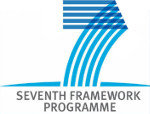Physical activity and beverage consumption in preschoolers: Focus groups with parents and teachers
De Craemer, M. ; De Decker, E. ; De Bourdeaudhuij, I. ; Deforche, B. ; Vereecken, C. ; Duvinage, K. ; Grammatikaki, E. ; Iotova, V. ; Fernández-Alvira, J.M. ; Zych, K. ; Manios, Y. ; Cardon, G.
Resumen: Background: Qualitative research is a method in which new ideas and strategies can be discovered. This qualitative study aimed to investigate parents’ and teachers’ opinions on physical activity and beverage consumption of preschool children. Through separate, independent focus groups, they expressed their perceptions on children’s current physical activity and beverage consumption levels, factors that influence and enhance these behaviours, and anticipated barriers to making changes.
Methods: Multi-cultural and multi-geographical focus groups were carried out in six European countries (Belgium, Bulgaria, Germany, Greece, Poland and Spain). In total, twenty-four focus groups with 122 parents and eighteen focus groups with 87 teachers were conducted between October 2010 and January 2011. Based on a semi-structured interview guide, questions on preschoolers’ physical activity (opinions on preschoolers’ physical factivity, how to increase physical activity, facilitators and barriers of physical activity) and beverage consumption (rules and policies, factors influencing promotion of healthy drinking, recommendations for future intervention development) were asked. The information was analyzed using qualitative data analysis software (NVivo8).
Results: The focus group results indicated misperceptions of caregivers on preschoolers’ physical activity and beverage consumption levels. Caregivers perceived preschoolers as sufficiently active; they argue that children need to learn to sit still in preparation for primary school. At most preschools, children can drink only water. In some preschools sugar-sweetened beverages like chocolate milk or fruit juices, are also allowed. It was mentioned that sugar-sweetened beverages can be healthy due to mineral and vitamin content, although according to parents their daily intake is limited. These opinions resulted in low perceived needs to change behaviours.
Conclusions: Although previous research shows need of change in obesity-related behaviours, the participants in the current study didn’t perceive such. The awareness of parents and teachers needs to be raised concerning their shared responsibility about healthy behaviours in preschoolers. Providing preschool teachers with ready-to-use classroom material will encourage them to change physical activity and beverage consumption, and to implement related activities in the classroom. Involvement in activities that their children perform at preschool will motivate parents to extend these behaviours to the home environment.:
Idioma: Inglés
DOI: 10.1186/1471-2458-13-278
Año: 2013
Publicado en: BMC PUBLIC HEALTH 13, 1 (2013), 278 [13 pp]
ISSN: 1471-2458
Factor impacto JCR: 2.321 (2013)
Categ. JCR: PUBLIC, ENVIRONMENTAL & OCCUPATIONAL HEALTH rank: 51 / 162 = 0.315 (2013) - Q2 - T1
Financiación: info:eu-repo/grantAgreement/EC/FP7/245200/EU/Multifactorial evidence based approach using behavioural models in understanding and promoting fun, healthy food, play and policy for the prevention of obesity in early childhood: ToyBox/TOYBOX
Tipo y forma: Article (Published version)
Exportado de SIDERAL (2019-05-29-11:38:30)
Visitas y descargas
Methods: Multi-cultural and multi-geographical focus groups were carried out in six European countries (Belgium, Bulgaria, Germany, Greece, Poland and Spain). In total, twenty-four focus groups with 122 parents and eighteen focus groups with 87 teachers were conducted between October 2010 and January 2011. Based on a semi-structured interview guide, questions on preschoolers’ physical activity (opinions on preschoolers’ physical factivity, how to increase physical activity, facilitators and barriers of physical activity) and beverage consumption (rules and policies, factors influencing promotion of healthy drinking, recommendations for future intervention development) were asked. The information was analyzed using qualitative data analysis software (NVivo8).
Results: The focus group results indicated misperceptions of caregivers on preschoolers’ physical activity and beverage consumption levels. Caregivers perceived preschoolers as sufficiently active; they argue that children need to learn to sit still in preparation for primary school. At most preschools, children can drink only water. In some preschools sugar-sweetened beverages like chocolate milk or fruit juices, are also allowed. It was mentioned that sugar-sweetened beverages can be healthy due to mineral and vitamin content, although according to parents their daily intake is limited. These opinions resulted in low perceived needs to change behaviours.
Conclusions: Although previous research shows need of change in obesity-related behaviours, the participants in the current study didn’t perceive such. The awareness of parents and teachers needs to be raised concerning their shared responsibility about healthy behaviours in preschoolers. Providing preschool teachers with ready-to-use classroom material will encourage them to change physical activity and beverage consumption, and to implement related activities in the classroom. Involvement in activities that their children perform at preschool will motivate parents to extend these behaviours to the home environment.:
Idioma: Inglés
DOI: 10.1186/1471-2458-13-278
Año: 2013
Publicado en: BMC PUBLIC HEALTH 13, 1 (2013), 278 [13 pp]
ISSN: 1471-2458
Factor impacto JCR: 2.321 (2013)
Categ. JCR: PUBLIC, ENVIRONMENTAL & OCCUPATIONAL HEALTH rank: 51 / 162 = 0.315 (2013) - Q2 - T1
Financiación: info:eu-repo/grantAgreement/EC/FP7/245200/EU/Multifactorial evidence based approach using behavioural models in understanding and promoting fun, healthy food, play and policy for the prevention of obesity in early childhood: ToyBox/TOYBOX
Tipo y forma: Article (Published version)
Exportado de SIDERAL (2019-05-29-11:38:30)
Permalink:
Visitas y descargas
Este artículo se encuentra en las siguientes colecciones:
articulos
Notice créée le 2016-12-20, modifiée le 2019-05-29
